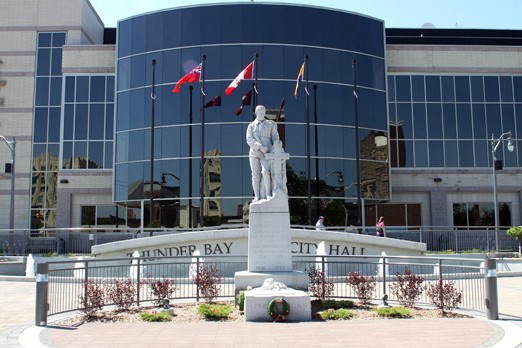THUNDER BAY – The City of Thunder Bay will expand its efforts to tackle poverty and homelessness issues, after city council voted Monday to create a new $1 million fund meant to leverage funding for transitional housing and other capital projects.
Mayor Bill Mauro cast a lone vote against funding the initiative, saying it would replace dollars that should be spent by the provincial and federal governments.
Coun. Mark Bentz, who launched the push for the city to do more on homelessness last year, said the fund, which will offer up to a maximum of $500,000 per project subject to council approval, could be impactful.
“I think we’re showing a lot of leadership here and we hope to effect some positive change with this, so it will be very interesting to see how this progresses,” he said.
The Community Partnership Fund, which council voted to top up from $200,000 to $1 million Monday, already existed as a fund to support infrastructure that offers public benefits.
In the past, it’s contributed to projects by Ontario Aboriginal Housing Services, Wequedong Lodge, Magnus Theatre, and Community Clothing Assistance.
In addition to building the fund up to $1 million, the city made eligible projects that support goals in the city’s Community Safety and Wellbeing Plan, which include reducing Indigenous homelessness by 50 per cent by 2027, and boosting transitional and supportive housing.
Projects must have a total budget of at least $150,000 to qualify. The city’s maximum contribution is $500,000.
Several councillors said it will be crucial the fund is used to leverage further dollars from outside the community, particularly from provincial and federal governments, and not as a primary funding source.
The $800,000 top-up for the fund will be drawn from the Renew Thunder Bay Reserve Fund, which sits at $16 million.
Applications will be reviewed by a team of senior staff from numerous city departments. Council will give final approval to the team’s recommendations.
The fund will be recommended for replenishment back up to $1 million each year through the budgeting process, but staff emphasized it will be up to council whether to continue funding it to that level.
First Nations and other Indigenous governing bodies like tribal councils that serve members in the city will be eligible to apply, with a report claiming Thunder Bay may be the first municipality in Canada to offer capital dollars to those groups.
Around two-thirds of the city’s homeless population is Indigenous, according to local homelessness point-in-time surveys.
Mauro, when asked why he cast the only vote against creating the fund, said he’s supported transitional housing developments in the past, but doesn’t believe they need city dollars.
“I think those projects will come anyway,” he said. “My concern is we’re just going to backstop something financially from the tax base that would have likely happened already.”
The Thunder Bay District Social Services Administration Board, which allocates provincial housing and homelessness dollars in the area, has identified transitional and supportive housing in particular as a pressing local need.
Around 700 people in Thunder Bay have signed up to a DSSAB list of people experiencing homelessness and seeking housing.
In a unanimous vote Monday, council also affirmed new criteria for the Community, Youth, and Cultural funding program emphasizing anti-poverty efforts, and the need to do more advocacy to push the provincial and federal governments for action on homelessness and poverty, a task that will rest with the city’s Inter-governmental Affairs Committee.
The deadline for the next round of Community Partnership funding is in late June, but won't be awarded by council until next year due to the upcoming municipal election.
